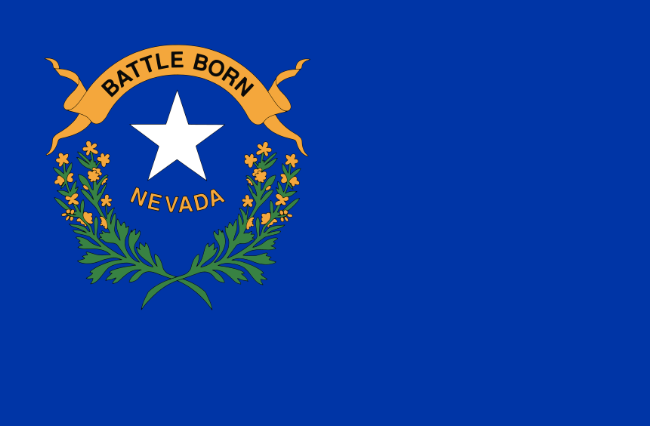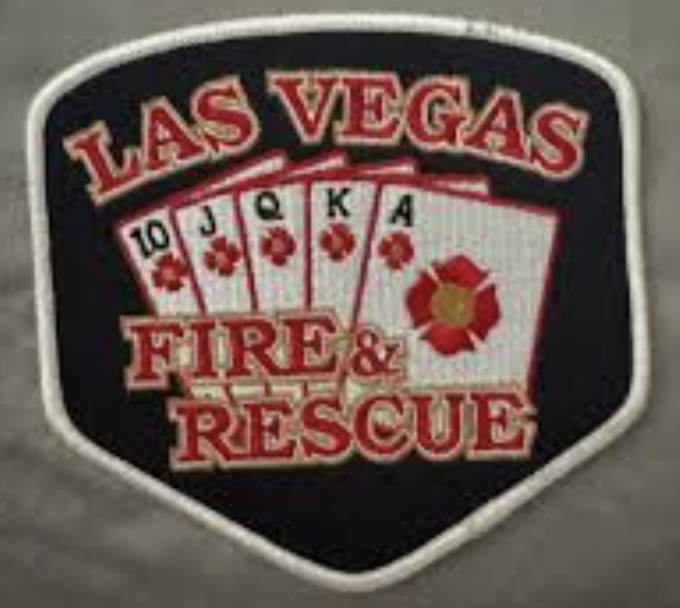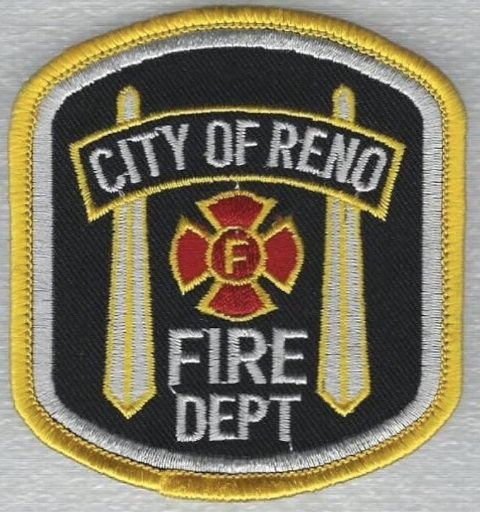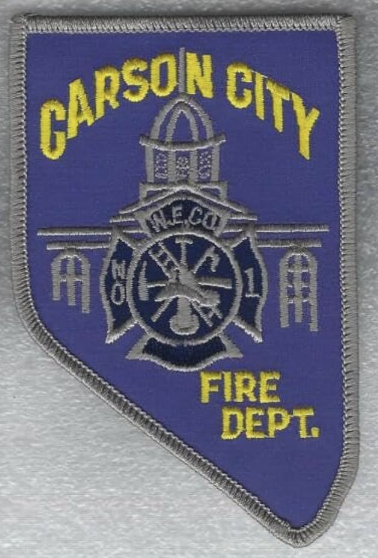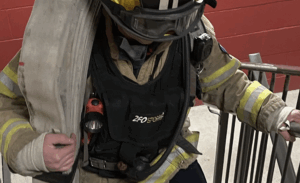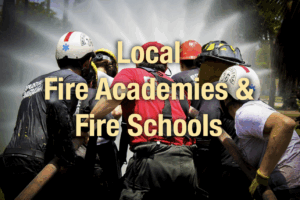If you’re wondering how to become a firefighter in Nevada, you’re not alone.
Firefighting in Nevada offers a unique and fulfilling career, whether you’re working in the bustling city of Las Vegas, a growing suburban area, or in rural fire districts.
The demand for firefighters across Nevada continues to rise, making it an ideal time for individuals looking to embark on this rewarding profession.
This guide covers everything you need to know about how to become a firefighter in Nevada, from meeting the basic requirements to completing training and successfully landing a job.
General Steps to Become a Firefighter in Nevada
Becoming a firefighter in Nevada requires dedication, physical endurance, and the ability to handle stressful situations. Follow these steps to start your journey to a career in firefighting.
1. Meet Basic Eligibility Requirements
To begin your firefighting career in Nevada, you must meet the basic eligibility criteria set by most fire departments across the state:
- Age & Education: You must be at least 18 years old and possess a high school diploma or GED. In some cities, like Las Vegas, candidates must be at least 21 years old to apply.
- Driver’s License: A valid Nevada driver’s license is required, as firefighters are often required to operate emergency vehicles in high-pressure situations.
- Residency: Some fire departments, such as those in Clark County, may prefer candidates to live within a certain response time distance from the fire station, though not all areas have this requirement.
2. Obtain Emergency Medical Certification
In Nevada, obtaining an EMT certification is generally required before you can be hired as a firefighter. Since firefighters often respond to medical emergencies, this certification is critical for performing tasks like CPR, first aid, and other medical procedures on scene.
- EMT Certification: This can be obtained from accredited programs through community colleges or the Nevada State EMS. Many fire departments, such as the Clark County Fire Department, require EMT-Basic certification, but some larger departments may require higher-level certifications, such as Paramedic certification.
- EMS Requirements: Check with specific departments, as some may accept you as a candidate without EMT certification but require you to complete it before being hired.
3. Apply to Nevada Fire Departments
Each fire department in Nevada may have different application processes, so it’s essential to research each one thoroughly. Make sure to gather all the necessary documents and certifications required for the application.
- Application Deadlines: Keep track of application windows for the departments you’re interested in, as these may vary.
- Required Documents: Be prepared to submit copies of your high school diploma, valid driver’s license, EMT certification (or other required medical certifications), and any additional documents requested by the department.
- Department-Specific Requirements: Many departments, such as Las Vegas Fire & Rescue, have specific preferences for applicants who have previous emergency services experience or certifications.
4. Pass the Firefighter Entrance Exam
A firefighter exam is required by most departments in Nevada. This typically includes multiple components:
- Written Exam: The written exam assesses your knowledge of general firefighting procedures, math, mechanical reasoning, reading comprehension, and situational judgment.
- Physical Ability Test (CPAT or PAT): This test evaluates your strength, endurance, and ability to handle tasks such as carrying heavy equipment, climbing ladders, and rescuing individuals from danger. Each fire department may use different variations of the physical test.
- Oral Interview: The oral interview allows hiring panels to assess your communication skills, professionalism, and your motivations for wanting to serve as a firefighter.
5. Complete Background and Psychological Evaluations
A background check and psychological evaluation are standard in the firefighter hiring process in Nevada. The background check will examine your criminal history, driving record, and employment history.
- Psychological Evaluation: Many fire departments, such as those in Clark County, will require a psychological exam to ensure that candidates can handle the mental stress and high-pressure nature of the job. This step ensures you’re emotionally fit for the demands of firefighting.
6. Pass a Medical Examination
A comprehensive medical exam is required to ensure you are physically fit to handle the job. This exam includes:
- Vision and Hearing Tests: These tests ensure you have the necessary sensory abilities to perform tasks safely and effectively on the job.
- Cardiovascular and Physical Fitness: The exam will assess your cardiovascular health and general fitness to determine if you’re physically capable of handling strenuous firefighting tasks.
- General Health: A full medical exam to screen for any conditions that could limit your ability to perform essential job functions.
7. Attend a Fire Academy
After being hired, new recruits will attend a fire academy for extensive training. The Nevada Fire Academy, located in Carson City, provides foundational training for all new firefighters in the state. This academy is accredited by the Nevada State Fire Marshal’s Office and covers the basics of fire science, hazardous materials, fire safety, and rescue operations.
- Fire Academy Training: Training programs at the academy include both classroom instruction and hands-on exercises. Recruits will learn fire tactics, emergency medical procedures, and vehicle rescue techniques.
- Local Fire Academies: Some fire departments, like Las Vegas Fire & Rescue, operate their own internal fire academies, providing recruits with additional department-specific training.
8. Continue Professional Development
Firefighting is a career that requires ongoing education and training. Even after completing the fire academy and becoming a certified firefighter, it’s crucial to stay up-to-date with the latest advancements in fire safety, rescue techniques, and medical practices.
- Advanced Certifications: Many Nevada firefighters pursue advanced certifications in areas such as hazardous materials response, fire officer training, technical rescue, and specialized medical procedures.
- Annual Drills and Training: All firefighters are required to participate in regular drills and department training exercises to maintain their skills and certifications.
Why Scoring High on the Firefighter Exam in Nevada Is Important
No matter where you apply in Missouri, passing the firefighter exam is crucial. Here’s why:
- Written Exam: This tests your cognitive abilities, such as reading comprehension, mechanical reasoning, math, and judgment. Your score here will determine your ranking for eligibility, so scoring well is essential.
- Physical Agility Test (CPAT or department-specific): You’ll need to prove you can physically handle the demanding tasks that come with the job. This is a high-stakes part of the process.
- Oral Interview: This is your chance to show your leadership, character, and motivation for joining the fire service.
Scoring well on the firefighter exam is critical for securing a position in Nevada.
Fire departments often use a ranking system based on the scores from the written exam, physical ability test, and oral interview.
The higher your score, the better your chances of being selected for a position.
Many departments, such as those in Las Vegas, hire directly from the top of the eligibility list, making it essential to perform well in every aspect of the hiring process.
Becoming a Firefighter in Las Vegas Nevada
Las Vegas Fire Department has its own set of qualifications and application procedures, including:
- Age & Education: Must be at least 21 years old with a high school diploma or GED.
- EMT Certification: EMT-Basic required by the time of hire.
- Assessment Process: This includes a written exam, CPAT, and an interview.
- Application Process: Online application with required documents and certifications.
- Apply here: Prospective applicants can find more information on the Las Vegas Department’s official firefighter website.
Becoming a Firefighter in Reno Nevada
Reno also has its specific criteria for hiring firefighters:
- Age & Education: Must be at least 18 years old with a high school diploma or GED.
- EMT Certification: EMT-Basic certification is preferred but may be obtained post-hire.
- Assessment Process: Includes written exam, physical test, and interview.
- Application Process: Lincoln’s fire department posts job openings online. Be sure to monitor recruitment periods to apply on time.
- Apply here: Prospective applicants can find more information on the Reno Fire Department’s official firefighter website.
Becoming a Firefighter in Carson City Nevada
Carson City also has its specific criteria for hiring firefighters:
- Age & Education: Must be at least 18 years old.
- EMT Certification: Must have EMT-Basic certification at the time of hire.
- Assessment Process: Written test, CPAT, and an interview.
- Application Process: Bellevue’s fire department posts job openings online. Be sure to monitor recruitment periods to apply on time.
- Apply here: Prospective applicants can find more information on the Carson City Fire Department’s official firefighter website.
Additional Considerations for Becoming a Firefighter in Nevada
- Residency: Some fire departments, particularly in larger cities like Las Vegas, may require firefighters to live within a certain radius of the station.
- Physical Fitness: Maintaining physical fitness is crucial for passing the CPAT and succeeding in the physically demanding tasks required on the job.
- Certifications: Earning advanced certifications, such as those in paramedic services or hazardous materials, can improve your prospects and lead to career advancement opportunities.
Final Thoughts: How to Become a Firefighter in Nevada
Becoming a firefighter in Nevada — especially in major cities like Las Vegas, Reno, and Carson City— is competitive but achievable. If you meet the eligibility requirements, earn your EMT certification, and excel on the firefighter entrance exam, you’ll have a strong chance of joining the fire service.
Becoming a firefighter in Nevada is a challenging but rewarding career path that offers individuals the opportunity to make a real difference in their communities.
By following the steps outlined in this guide and preparing for the exams and training, you can begin your journey toward a fulfilling and exciting career in fire service.
Stay focused, stay fit, and prepare for every step. The fire service needs people like you — committed, capable, and ready to protect and serve.

